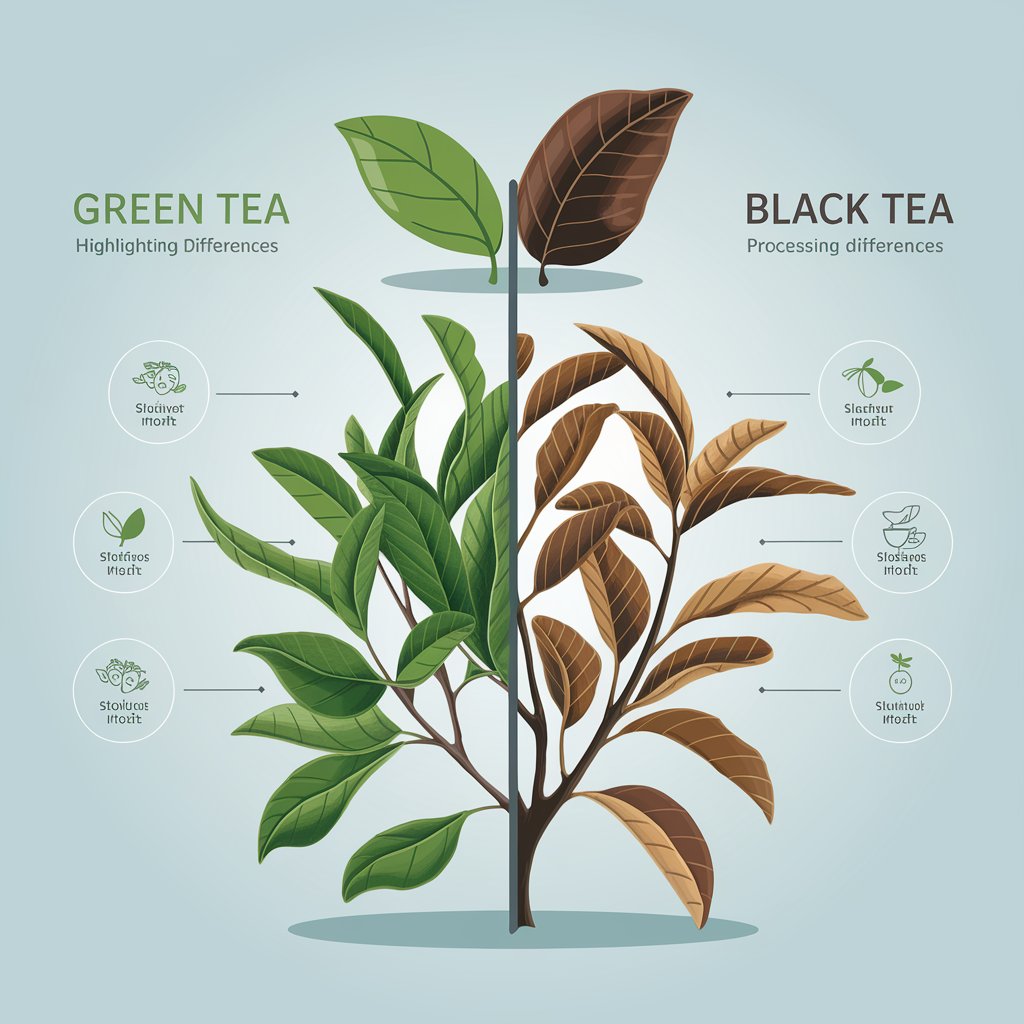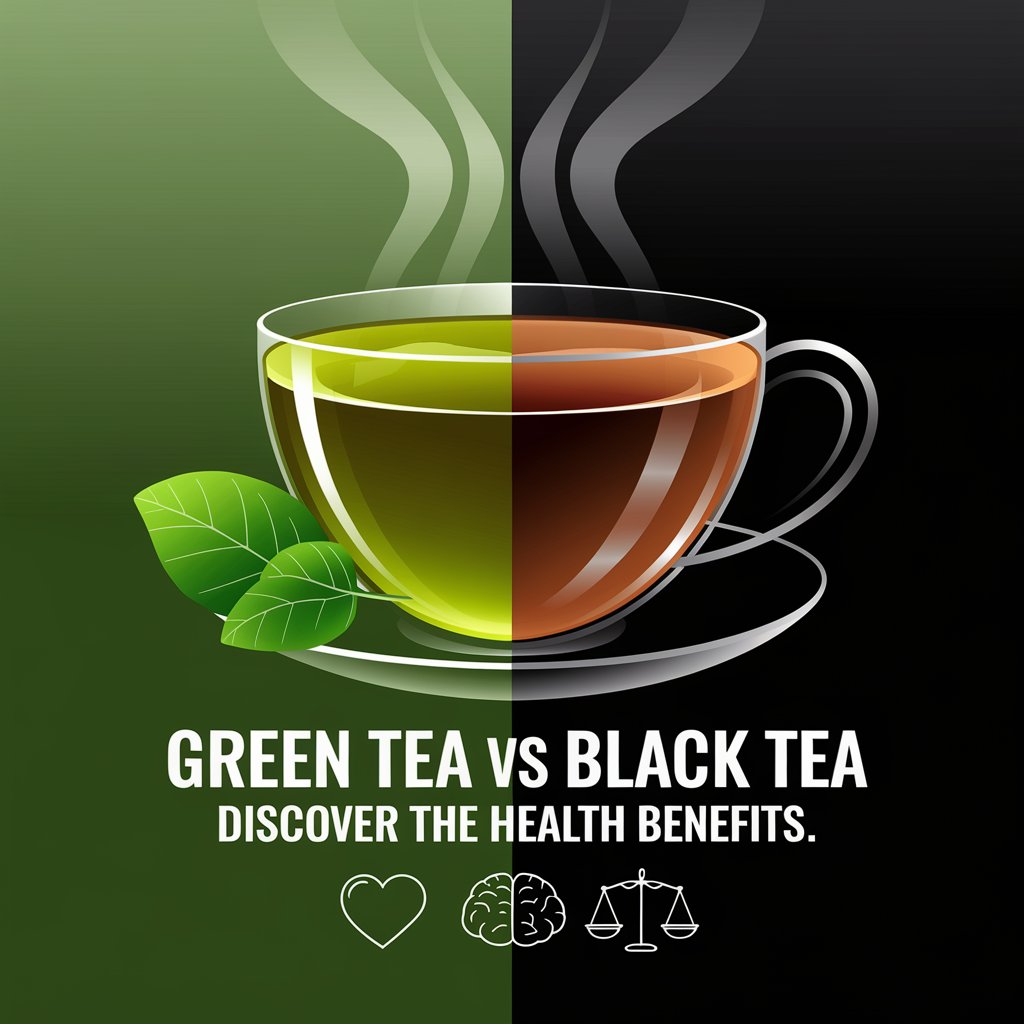Are you trying to decide between green tea and black tea for better health? Here we will discuss every aspect of Green Tea vs Black Tea. Many people face this dilemma, wondering which tea offers more benefits. Both teas come from the same plant, Camellia synesis, but differ in processing, taste, and health properties. This guide will help you understand the differences and make an informed choice.

What Is Green Tea?
Green tea is made by steaming or pan-frying tea leaves to prevent oxidation. This process preserves its green color and high levels of catechins, especially epigallocatechin gallate (EGCG), a powerful antioxidant. Green tea is known for its light, grassy flavor and is often associated with various health benefits.
What Is Black Tea?
Black tea undergoes full oxidation, turning the leaves dark and enhancing its robust flavor. This process increases the formation of theaflavins and thearubigins, antioxidants that contribute to black tea’s health benefits. Black tea is commonly consumed worldwide and is known for its bold taste.
Health Benefits Comparison
Antioxidant Content
- Green Tea: Rich in catechins like EGCG, which may help reduce inflammation and support heart health.
- Black Tea: Contains theaflavins and thearubigins, which have antioxidant properties and may support cardiovascular health.
Caffeine Levels
- Green Tea: Contains less caffeine (approximately 20-45 mg per 8 oz cup), making it a gentler option for those sensitive to caffeine.
- Black Tea: Higher in caffeine (approximately 40-70 mg per 8 oz cup), providing a more robust energy boost.
Weight Management
- Green Tea: May aid in weight loss by boosting metabolism and increasing fat oxidation.
- Black Tea: May support weight management by promoting fat breakdown and reducing calorie intake.
Nutritional Differences
| Nutrient | Green Tea | Black Tea |
|---|---|---|
| Catechins | High | Lower |
| Theaflavins | Low | High |
| Caffeine | 20-45 mg per 8 oz | 40-70 mg per 8 oz |
| Flavor Profile | Light, grassy | Bold, robust |

1. Which is healthier: green tea or black tea?
Both teas offer health benefits, but green tea is higher in catechins, which are potent antioxidants. Black tea contains theaflavins, which also have health-promoting properties. Your choice may depend on your specific health goals and caffeine sensitivity.
Read More detailed about Green Tea Vs Black Tea.
2. Does green tea have more antioxidants than black tea?
Yes, green tea generally has higher levels of catechins, particularly EGCG, due to its minimal oxidation process. Black tea’s oxidation reduces catechin content but increases theaflavins.
Read article on Black Tea vs. Green Tea: Differences in Caffeine and health.
3. What are the caffeine levels in green tea vs black tea?
Green tea contains approximately 20-45 mg of caffeine per 8 oz cup, while black tea contains about 40-70 mg per 8 oz cup. Black tea provides a stronger caffeine boost.
4. Can green or black tea aid in weight loss?
Both teas may support weight management. Green tea can boost metabolism and fat oxidation, while black tea may help reduce calorie intake and promote fat breakdown.
Read Green Tea vs. Black Tea: Which One Is Healthier?
5. How do the health benefits of green and black tea compare?
Green tea is rich in catechins, supporting heart health and weight management. Black tea contains theaflavins, which may improve cholesterol levels and gut health. Both teas offer unique benefits.
Wanna glow you skin read this article Best Fruit Juice to Drink for Glowing Skin: Top Picks
Conclusion
In conclusion, both green tea and black tea offer unique health benefits, making them valuable additions to a balanced diet. Green tea is rich in catechins like EGCG, which may support heart health and aid in weight management. Black tea contains theaflavins, known for their antioxidant properties and potential to improve cardiovascular health. Both teas contain caffeine and L-theanine, which can enhance alertness and cognitive function. Ultimately, the choice between green tea vs black tea depends on personal preference and specific health goals. Incorporating either into your daily routine can contribute to overall well-being.



